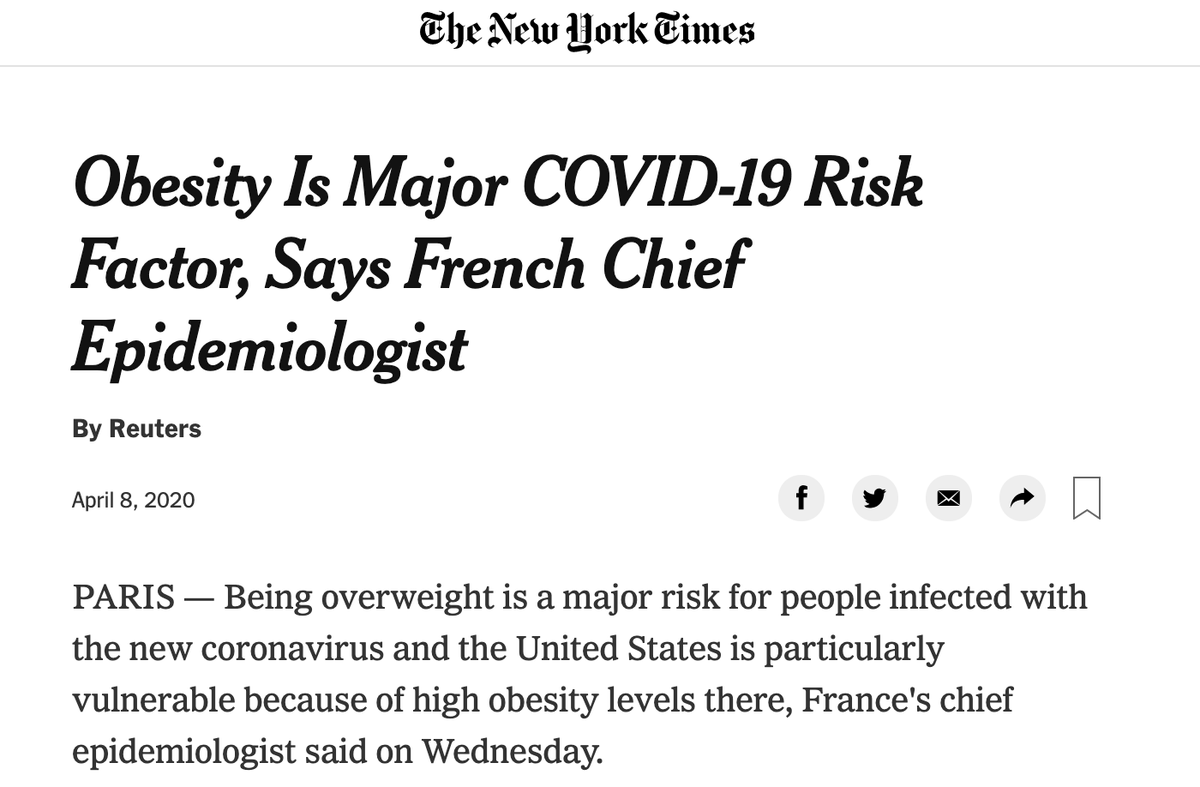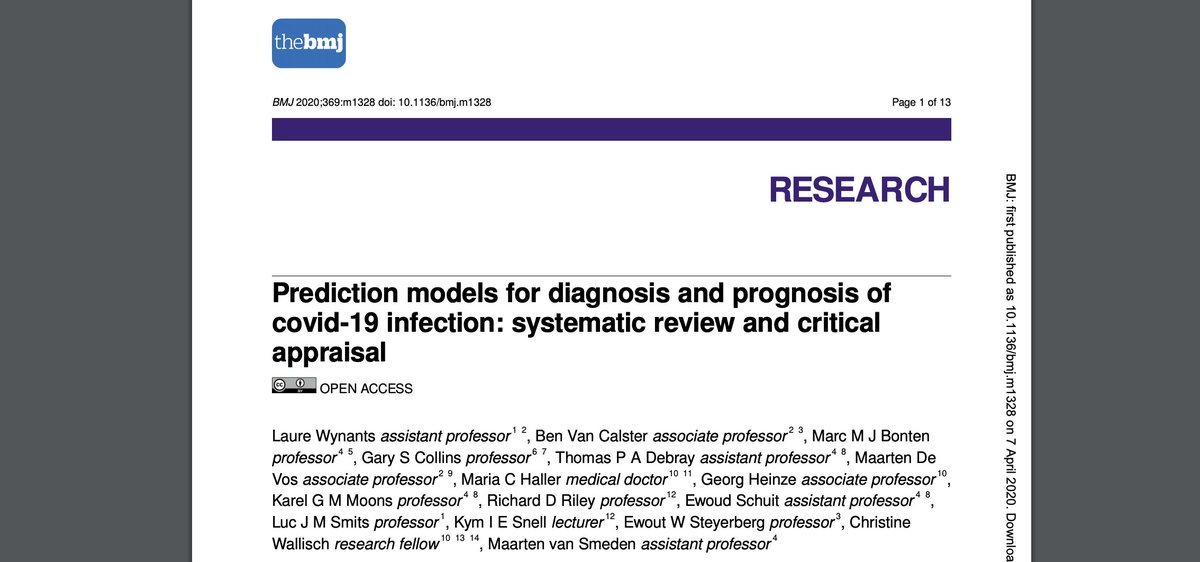1/n
Exhibit A: nytimes.com/reuters/2020/0…
2/n

BUT definitions for what a risk factor really is or should be varies. As this article argues quite convincingly bmj.com/content/355/bm…
3/n
4/n
Is it a factor that when changed immediately changes the risk of a bad outcome?
Is it a factor that we should keep in mind when making prognosis?
Or is it a factor that simply covaries with other "known risk factors"?
5/n
Well, take this example: academic.oup.com/cid/advance-ar…
Conclusion: "Unfortunately, obesity in people <60 years is
a newly identified epidemiologic risk factor which may contribute to increased morbidity rates ..."
6/n
Or are we looking at a complex relationship between access to care, history of diseases, social economic status and a bad outcome?
And why below 60 you ask, and not, say, 53?
7/n
8/n
And why were people with a BMI of 35 and over compared only to people with a BMI in the 30-34 range?
There. Are. No. Rules
9/n
If we aren't careful, COVID-19 patients will suffer from arbitrary risk grouping, statistical malpractices and/or hidden health(care) inequalities
10/n
We can do and should do better. To start, by defining what it is we are after when we study these dangerously ambiguous "risk factors"
11/n
Those who are not, this is a great place to start: stat.berkeley.edu/~aldous/157/Pa…
12/n
It is helpful to identify strong predictive factors that help with diagnosis and prognosis
It is helpful to identify the true causes of bad outcomes after infection
It is helpful to describe which patients ended up in ICU
13/n
end rant.



